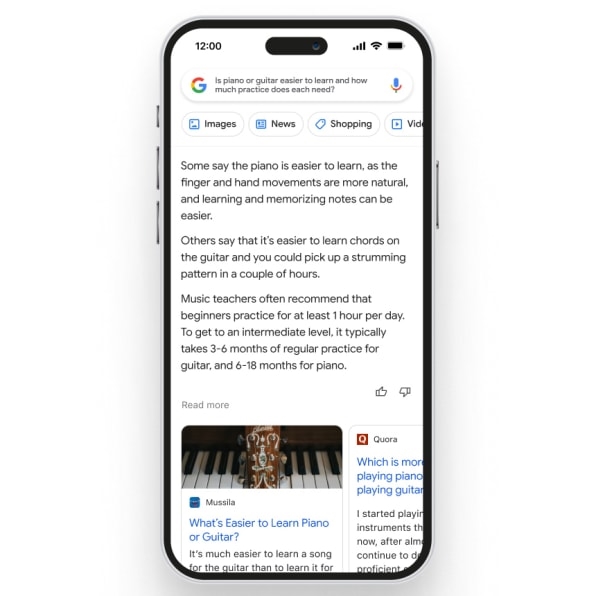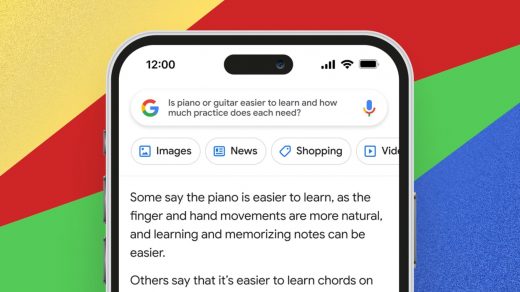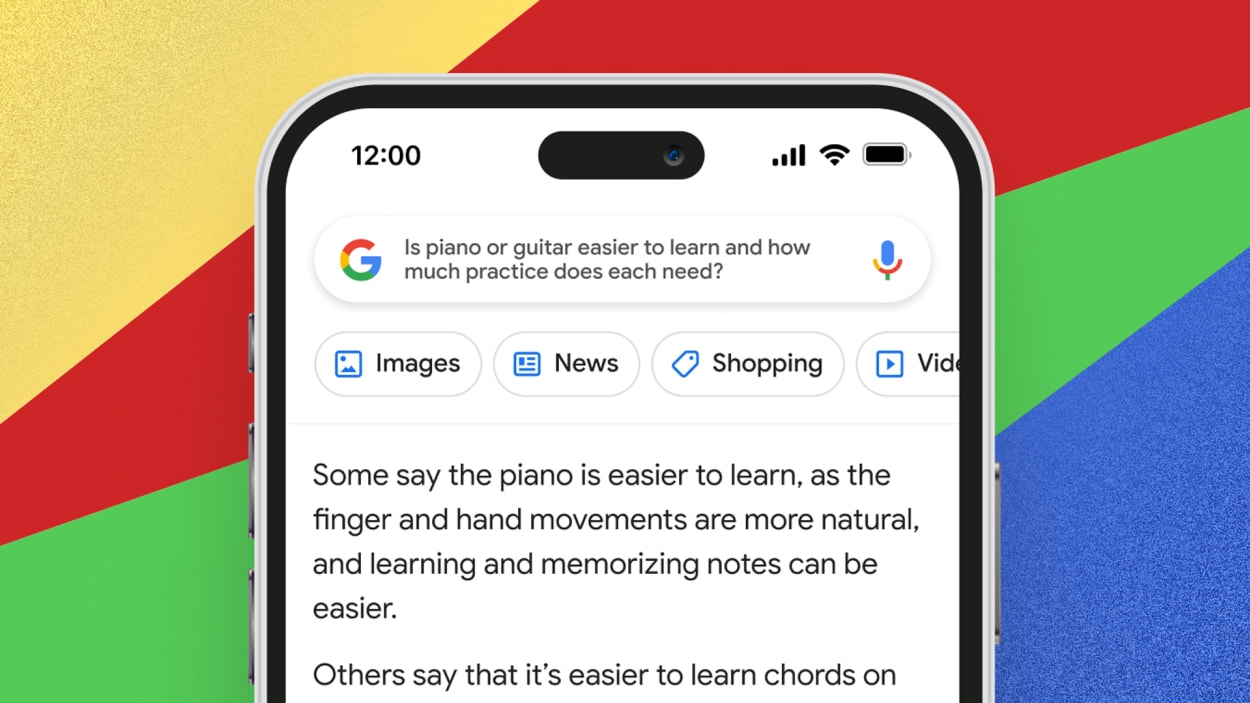Google announces new Bard chatbot to counter ChatGPT
Google says it’s moving quickly to roll out new generative AI features to counter the massive success of OpenAI’s ChatGPT. In a three-pronged announcement Monday, the company announced a new chatbot called Bard to compete with ChatGPT, a new conversational search feature that returns a package of multimedia search results, and a new generative AI API upon which developers and creatives can build their own apps.
New Bard AI chatbot
Google’s Sundar Pichai said in a blog post Monday that its new ChatGPT-like Bard chatbot, which is built atop Google’s powerful natural language processing model LaMDA (Language Model for Dialogue Applications), will soon be released to a group of “trusted testers” outside the company. After some safety issues and other kinks are worked out, Google says, the tool will be released to the general public, but it declined to give a time frame for general availability.
Pichai says Bard draws on information from the web to provide fresh, high-quality responses. “Bard can be an outlet for creativity, and a launchpad for curiosity, helping you to explain new discoveries from NASA’s James Webb Space Telescope to a 9-year-old, or learn more about the best strikers in football right now, and then get drills to build your skills,” Pichai writes.
Generative AI in Search
In the second part of the announcement, Google says it is introducing generative AI into its search product for broad searches where there is more than one correct answer. So, if the user asks the search engine “is the piano or guitar easier to learn, and how much practice does each need,?” it might return a package of multimedia content that answers a variety of questions inherent in the request (i.e. “what are the most popular ways of learning piano scales?”). It might return different subjective viewpoints on the question from people who know.

“So you can quickly understand the big picture and learn more from the web: whether that’s seeking out additional perspectives, like blogs from people who play both piano and guitar, or going deeper on a related topic, like steps to get started as a beginner,” Pichai explains. He says the new search features will “begin rolling out on Google Search soon.”
AI for devs, creatives
Finally, Google says it will soon be rolling out new tools to enable developers and creators to build their own applications using AI, AI cloud services, and AI-assisted ad campaigns.
Specifically, Pichai writes, Google will next month begin giving individual developers, creators, and enterprises access to a its Generative Language API (initially powered by LaMDA). The end users can use this API to build their own natural language apps. Google says it will work through Google Cloud partnerships with Cohere, C3.ai, and Anthropic to help extend the API to more partners. “Over time, we intend to create a suite of tools and APIs . . . ,” Pichai says.
An AI arms race
Today’s announcements are part of a broader move within Google to imbue more of its products and services with AI. The announcements may also represent part of a Google PR effort to take back some of the massive mainstream attention its rival OpenAI has recieved for ChatGPT.
After all, Google, which declared itself an “AI-first” company in 2017, has been placing bets on AI since the 2000s. OpenAI can be credited with making natural language processing (NLP) models larger, and feeding them massively larger amounts of training data, but it was Google that in 2018 invented the BERT (bidirectional encoder representations from transformers) model that made all current NLP chatbots possible.
And, as Pichai stresses, the company’s current work in generative AI is just getting going.
“We continue to invest in AI across the board, and Google AI and DeepMind are integral to a bright AI-first future. . . ,” Pichai said during an earnings call with analysts last week. “We are just at the beginning of our AI journey and the best is yet to come.”
(15)



